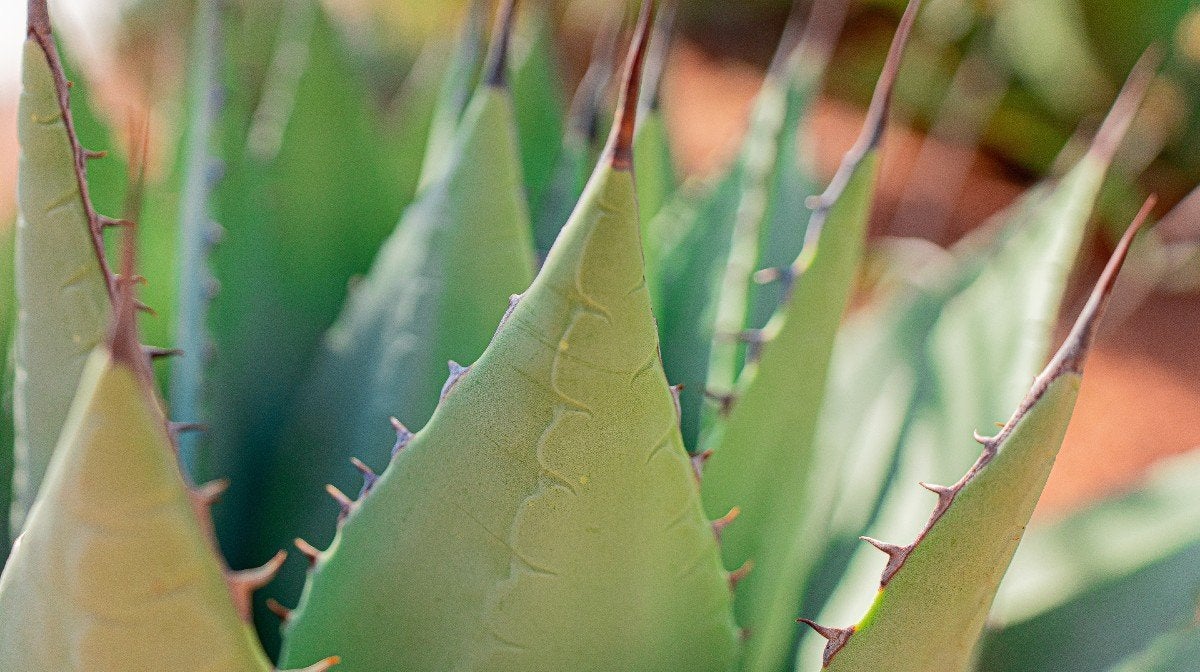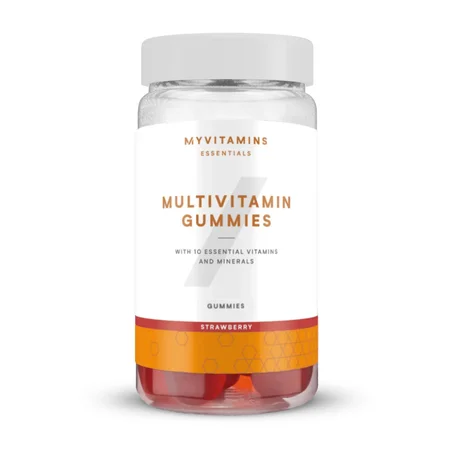
Aloe vera has been a topical issue recently, with claims of its benefits for skin and gut health doing the rounds on TikTok. In one video captioned "Aloe vera juice for skin and gut health 11/10", a woman claimed her skin had cleared up and her gut health had “never been better” since beginning drinking aloe vera juice.
Some of us may be more familiar with aloe vera as a remedy for nappy rash and treating sunburn. But is it more than a skin soother? It’s a sticky issue. In this article, we’ll get to the root of it. Here’s what the research says about aloe vera for skin and gut health.
What is aloe vera?
Aloe vera belongs to the succulent family and most will recognise the plant by its trademark tentacle-like serrated leaves.
Aloe vera plant is the source of aloe vera gel, which is obtained from the interior of the fleshy leaves of the aloe vera plant. This gel is found in the layer just below the rind of the fleshy leaves and consists of water and carbohydrate polymers. The gel is also rich in vitamins, essential amino acids, lipids and polyphenols thought to give aloe vera antiviral, antibacterial, and antifungal properties.
Aloe vera juice is made from the gel of the plant and is produced in one of two ways:
Whole leaf processing
In this production method, the entire aloe vera leaf is used to produce the juice. It’s ground up and then filtered to remove any of the latex compounds (called “aloin”).
It’s important to remove any of the latex compounds as these have a bitter taste, harsh laxative effects and are potentially harmful in large quantities.
Inner leaf processing
With this method, the rind and latex are removed before the inner gel is processed into a liquid. Some manufacturers will further filter the gel for improved concentration.
Here's the catch...
Before getting into the potential benefits of aloe vera juice, it’s important to note that it’s incredibly difficult to study because of differences in its preparation, production methods, dosing and plant sources.
Aloe vera has plentiful health benefits (as you’ll soon find) but not every product on the market is made equally. It’s like protein powder in that sense; some companies will produce premium quality powders while others will sell poorly manufactured powders.
What does the research say about aloe vera juice?
There are plenty of documented benefits of aloe vera application and human health (1). Research suggests aloe extracts may help with management of skin conditions as well as some forms of immune dysfunction, atherogenesis (plaque buildup in the arteries), and many other cell functions.
There are few studies researching aloe vera juice on its own, but it’s fair to presume there’s some crossover between it and other aloe vera products, as they’ll contain many if not all the same bioactive compounds.
Aloe vera juice for gut health
One of the main claims in the TikTok video, and others like it, is aloe vera juice’s benefits for gut health.
It turns out there may be some evidence to back up that claim. One study looking into the effects of aloe vera on lactobacilli, a probiotic commonly found in human digestive systems, found that different concentrations of aloe vera juice promoted the growth of gut-friendly bacteria (2). A separate study observed an antimicrobial effect of aloe vera juice on potentially harmful bacteria and fungi (3). It may also help with IBS-related issues like constipation and bloating (4).
If aloe vera juice does play a role in promoting “good” and reducing “bad” gut bacteria, then claims of improved digestive health are not without merit. This may also lead to benefits such as improved digestion, mood and mental wellbeing, reduced bloating and symptoms of skin conditions (5).
Aloe vera juice and wrinkles
Aloe vera juice may also have other more intriguing benefits. One of particular interest is a potentially unique anti-skin wrinkling effect (6). One study compared the possible anti-skin wrinkling applications of both juice and gel. The researchers found that juice showed anti-wrinkling effects, but gel didn’t.
There were limits to the study though; researchers tested isolated skin cells in a lab environment and not human participants. That doesn’t mean the findings are worthless by any means, but the application is worth noting. Applying aloe vera juice to the skin is unlikely to have the same effects as drinking it, so if considering using it for this potential benefit, it would be worth applying topically.
Aloe vera and wound healing
It’s been a popular treatment for burns and scrapes for years, and the research backs up the use of aloe vera juice as a therapeutic tool for healing wounds. One study evaluated two types of aloe vera juice (from two different plant species) on wounds. The results showed that both types helped healing and prevented the growth of harmful microbes without side effects on the skin (7).
Aloe vera alternatives
One of the hurdles to consistent aloe vera juice intake is the cost as well as questions surrounding manufacturing processes.
There aren’t many practical alternatives to aloe vera juice for potential improvements for skin health and wound healing. But there are a few possible alternatives for improving gut health. Gut health itself is an enormous and complex topic. It’s incredibly difficult to suggest products for improving digestion, as every person’s gut is unique.
But for general gut health, probiotics are useful for improving the profile and diversity of your microbiome. Additionally, an anti-inflammatory like omega-3 may be helpful if you suffer from IBS or another bowel-related issue, and a fibre supplement may be worthwhile if you struggle with constipation.
If you really struggle with gut-related issues, it’s advised you speak with a specialist with expertise in the area before taking any supplements, as you make any issues worse otherwise.
How long before benefits of aloe vera juice?
Benefits of AVJ for skin health are usually seen quickly. In many of the studies cited in this article, skin issues improved almost immediately after its introduction. You may notice gut issues improve fairly quickly, too, with benefits usually observed within a few days. AVJ’s laxative and stomach-soothing effects happen much faster.
Take home message
Aloe vera juice is more than just a TikTok trend. There can be plenty of potential benefits to taking it, however, it is quite expensive.
It's possible uses for improving gut health and preventing skin wrinkling are both genuinely intriguing.
Normally we wouldn’t recommend jumping on the bandwagon of a TikTok trend, but in the case of AVJ and aloe vera, it may be worth a try. Go with your gut.






